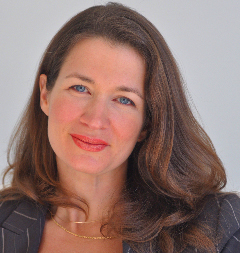Increasingly, the couples and families I find calling for a Humanist wedding do so for a couple of key reasons. One reason is that they don’t follow the religious traditions of their parents or grandparents and they want a ceremony that reflects their belief systems. The other reason is that increasingly, couples of mixed religious, cultural and ethnic backgrounds are deciding to marry — again, bucking traditions of their parents or grandparents and so on. Indeed in a country as diverse as Canada and particularly in a city as multi-cultural and diverse as Toronto, this makes a lot of sense.
So, I was not surprised to see these recent Statistics Canada numbers on marriage in Canada. The article from Stats Can, which draws from data from the 2011 National Household Survey states that “As Canada’s population is becoming increasingly diverse, more people are forming a conjugal union with someone from a different ethnocultural background”. The numbers, more specifically state that more than 360,000 couples were in mixed unions and that the number has increased from 2.6 pecent of all couples in 1991 to 4.6 percent two decades later in 2011 (Those who are Canadian born are also more likely to be in mixed unions). According to the study, this involves “relationships where one spouse or partner is a member of a visible minority while the other is not, or where the spouses or partners are from different visible minority groups.” The research found more than half of the mixed unions or marriages documented involved partners from the same general religious group such as Christianity or others. One-fifth involved both partners without any reported religious affiliation. About 26 percent of all mixed unions did not have the same religious affiliation, compared with 9.8% of all couples in Canada.
A 2010 Toronto Life Article documented these changes saying that Toronto, being the most diverse city in the country, also had the most mixed or blended marriages and that the Greater Toronto Area, which includes Pickering, Ajax, Milton, Oakville and Georgina had the most “young visible minorities are marrying outside their tribes. From the Census information used then, the article reported that “45 per cent of second-generation immigrants who are married or living common law are doing so with someone of a different race or ethnicity.” They add that “by the third generation, it spikes to a stunning 68 per cent.”
Indeed parents who worried about the problems such as incompatibility, a dilution of religious practice and the risk of religiously or culturally confused offspring — problems they predicted would arise from mixed marriages 15 and 20 years ago — are no longer nearly as worried. The couples that I speak to, many of whom do not actively practice their faith through traditional means, aren’t nearly as worried either. Many of those who I have spoken to have found ways to mutually support, combine or blend their backgrounds while dating. And, Humanist officiants like myself work to ensure that those differences and that diversity is celebrated in an inclusive way during a Humanist wedding ceremony.
Indeed couples who come to me often start by saying “We are mixed” or “we’re nothing so I guess there is no ritual that would really work for a wedding like ours.” They are always shocked and delighted to find out that not only is there PLENTY to incorporate into blended relationships that often also include agnostics, atheists, lapsed believers or practitioners, the spiritually confused or spiritually independent but that it sets the stage beautifully for the spirit of collaboration that is needed for any marriage or union, mixed/blended or not.

